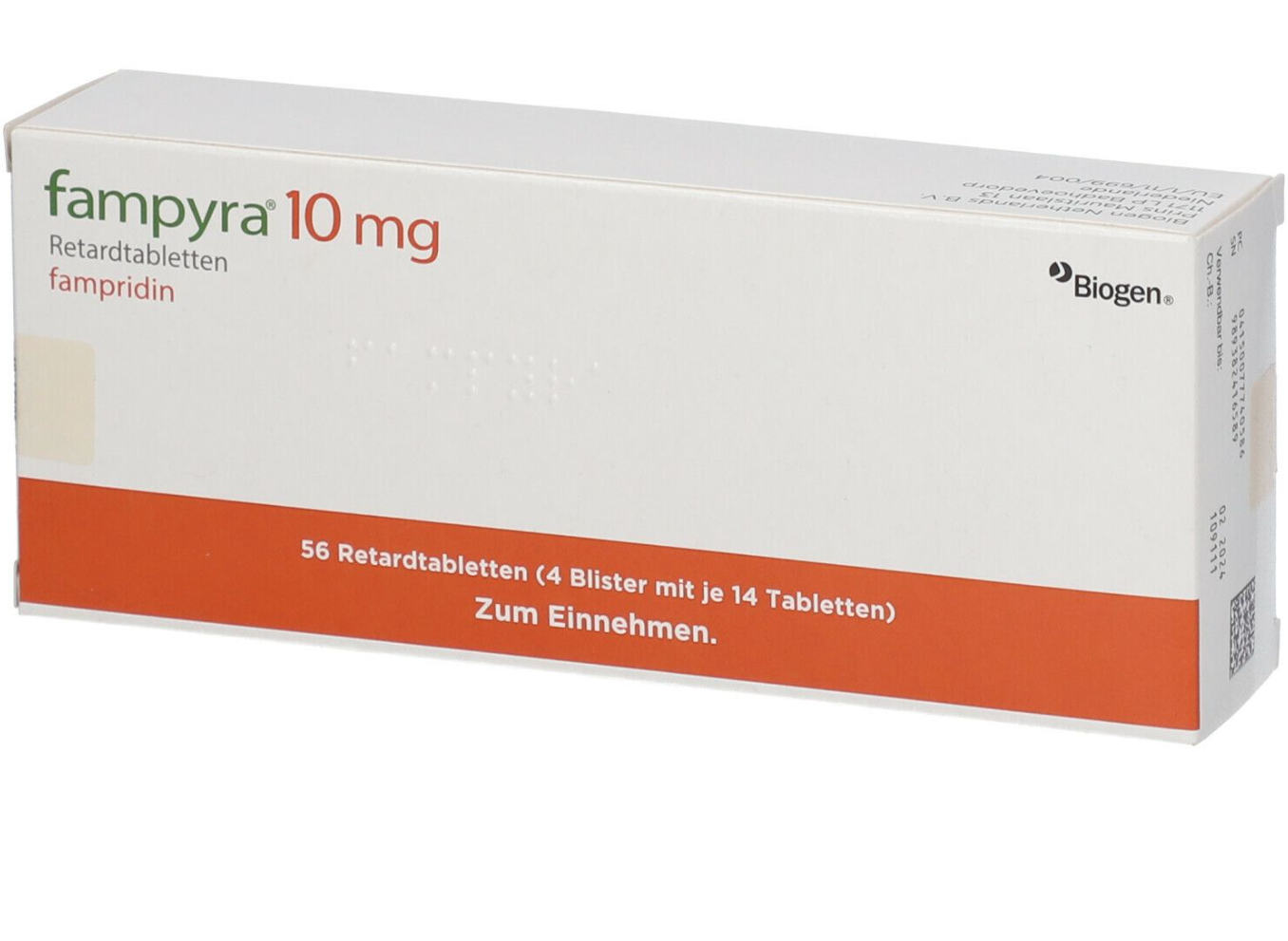Fampyra (fampridine) vs Tyruko (natalizumab-sztn)
Fampyra (fampridine) vs Tyruko (natalizumab-sztn)
Fampyra (fampridine) is a potassium channel blocker designed to improve walking in patients with multiple sclerosis (MS) by increasing nerve signal conduction in damaged nerves. Tyruko (natalizumab-sztn) is a monoclonal antibody that targets cell adhesion molecules, used to reduce the frequency of clinical exacerbations and to slow the progression of physical disability in patients with relapsing forms of MS. The choice between Fampyra and Tyruko would depend on the specific clinical goals for the patient, such as improving walking ability versus reducing relapses and disease progression, and should be made in consultation with a healthcare professional who can evaluate the patient's overall health condition and treatment history.
Difference between Fampyra and Tyruko
| Metric | Fampyra (fampridine) | Tyruko (natalizumab-sztn) |
|---|---|---|
| Generic name | Fampridine | Natalizumab-sztn |
| Indications | Improvement of walking in patients with multiple sclerosis (MS) | Relapsing forms of multiple sclerosis (MS), Crohn's disease |
| Mechanism of action | Potassium channel blocker | Integrin receptor antagonist |
| Brand names | Fampyra | Tyruko, Tysabri |
| Administrative route | Oral | Intravenous |
| Side effects | Urinary tract infection, insomnia, dizziness, headache | Headache, fatigue, urinary tract infections, arthralgia, infusion reactions |
| Contraindications | Seizure history, moderate to severe renal impairment | Progressive multifocal leukoencephalopathy (PML), hypersensitivity to natalizumab |
| Drug class | Potassium channel blocker | Monoclonal antibody |
| Manufacturer | Biogen | Sandoz |
Efficacy
Fampyra (Fampridine) and Its Efficacy in Multiple Sclerosis
Fampyra, known generically as fampridine, is a medication approved for use in improving walking in patients with Multiple Sclerosis (MS). MS is a chronic, often disabling disease that attacks the central nervous system. The efficacy of Fampyra in MS is primarily observed in its ability to improve walking speed in some patients. Clinical trials have demonstrated that a subset of individuals with MS experience a significant improvement in walking speed and endurance when taking Fampyra. This is believed to be due to the drug’s action as a potassium channel blocker, which can help improve nerve signal conduction in damaged nerves.
However, it is important to note that Fampyra does not work for everyone with MS, and its benefits on walking ability vary among individuals. The drug is typically prescribed after an evaluation of walking ability and may include a trial period to determine its effectiveness for the patient. The improvements in walking can have a meaningful impact on the quality of life for those who respond positively to the treatment.
Tysabri (Natalizumab) and Its Efficacy in Multiple Sclerosis
Tysabri, with the active ingredient natalizumab, is another medication used in the treatment of Multiple Sclerosis. It is particularly indicated for the treatment of relapsing forms of MS to slow the progression of physical disability and decrease the frequency of clinical exacerbations. The efficacy of Tysabri is attributed to its mechanism of action as a monoclonal antibody that binds to the alpha-4 subunit of integrins expressed on the surface of leukocytes. This binding prevents the migration of potentially damaging immune cells across the blood-brain barrier into the central nervous system, where they could cause inflammation and demyelination.
Clinical trials have shown that Tysabri significantly reduces the annual relapse rate and slows the progression of disability in individuals with relapsing-remitting MS. Additionally, MRI scans have revealed that patients on Tysabri have fewer new or enlarging brain lesions compared to those not taking the medication. Despite its efficacy, Tysabri is generally recommended for patients who have not responded adequately to, or cannot tolerate, other treatments for MS due to the risk of a rare but serious brain infection known as progressive multifocal leukoencephalopathy (PML).
Regulatory Agency Approvals
Fampyra
-
European Medical Agency (EMA), European Union

-
Food and Drug Administration (FDA), USA

-
Health Canada

-
Therapeutic Goods Administration (TGA), Australia

-
Medsafe (NZ)

Tyruko
-
European Medical Agency (EMA), European Union

-
Food and Drug Administration (FDA), USA

Access Fampyra or Tyruko today
If Fampyra or Tyruko are not approved or available in your country (e.g. due to supply issues), you can access them via Everyone.org.
How it works

Make an enquiry
Choose the medicine you want to buy, answer a couple of questions, and upload your prescription to speed things up. We’ll get back to you within 24 hours.


Make an enquiry
Choose the medicine you want to buy, answer a couple of questions, and upload your prescription to speed things up. We’ll get back to you within 24 hours.


Breeze through the paperwork
We'll guide you through the required documents for importing unapproved medicine, ensuring you have all the necessary information.


Get a personalized quote
We’ll prepare a quote for you, including medicine costs and any shipping, administrative, or import fees that may apply.


Receive your medicine
Accept the quote and we’ll handle the rest - sourcing and safely delivering your medicine.

Some text on this page has been automatically generated. Speak to your physician before you start a new treatment or medication.
Let's talk
If you have any questions, call us or send us a message through WhatsApp or email:
Contact us




